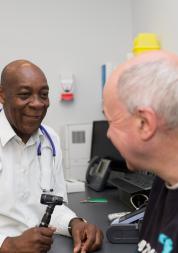New primary care roles
This new report responds to two findings in the neighbourhood study:
o A need for co-design in the remodelling of primary care services.
o Community interest and understanding
o A need for co-design in the remodelling of primary care services.
o Community interest and understanding

Key findings
Positive
- New Primary Care Roles: Value time with patients and effecting changes in health
- Practice Staff: recognise relief on GP time and ability to offer more/new services
Integration
- New Primary Care Roles: Most feel valued and integrated, but some not invited to team meetings
- Practice Staff: Time a factor in integrating new staff, uneven availability of new roles
- Both: Communication was often by face to face meeting, supported by emails or phone
Difficulties and barriers
- New Primary Care Roles: Having enough time, admin levels required and uneven access to IT systems
- Practice Staff: Investment in training felt wasted when staff move on
- Solutions: Shadowing and introductory sessions needed for new staff, regular GP time for advice also wanted
Improving
- New Primary Care Roles: Desire for structure, a regular space to work, practice staff to understand role
- Practice Staff: More time with new staff wanted, also to retain staff for longer
Other
- New Primary Care Roles: Could relevant new staff cover flu jabs, also a need for regular clinic times
- Practice Staff: Could relevant staff ‘take blood’, they need more space and more of the roles available
